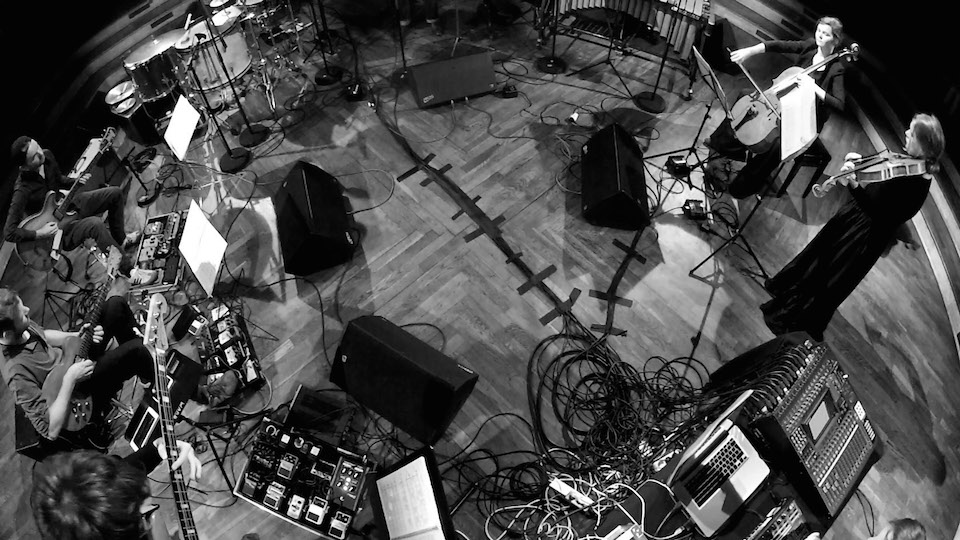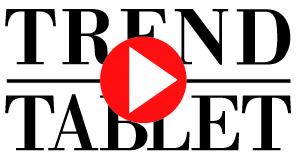PORTRAITS
SERENUS ZEITBLOM OKTETT

Eight Berlin-based musicians have together under a name taken from the novel, Doktor Faustus by Thomas Mann. To every performance, each brings their own ideas and instruments, and together they create a live collage of structure and improvised chaos, order and disorder. The result is music for abandoned airports and oil refineries. It’s awkward and rounded, and according to bass player, Andreas Dzialocha, hopefully empty.
An interview by Sophie Joy Wright
How would you classify the music of the octet?
The Serenus Zeitblom Oktett consists of musicians from pop, free improvised and contemporary music to name it somehow. We aim for a highly artificial but organic live and studio sound. The octet is accompanied by a ninth member, the Klanggestalter. Every instrument is being amplified and processed by filters and live algorithms, neutralizing the difference of acoustic and electric instruments, resulting in a new type of chamber music. Our violinist said once that we do music for ‘abandoned airports’. I like that metaphor!
You mentioned free improvisation – this is very important to your music. How do you develop your complementary collaborative instincts as a group, or is this brought on an individual level to then fit into the group?
Again there is a good mix of strong improvisers and musicians with a more ‘structured’ music background in the octet. What I like about this is that we don’t try to find a common ground. Personally, I try to find a way into a music that does not rely too much on either of these things; no specific melodies nor elaborated harmonies in a classical sense but also no improvisational communication systems to get used to. This music we’re searching for is very empty in a way. The development comes from talking about these things but of course mainly when we make music together. Our common ground gets emptier with each concert, which is great!
Where have you performed recently?
« Huset » in Copenhagen last October, as part of a festival for contemporary music called ‘Sonic Festival’. The club vibe fit nicely with our sound and the whole festival atmosphere. I miss this in Berlin a little bit; contemporary music is so highly valued in Copenhagen. I’m a fan of « serious music » but you should be able to drink a beer to it.
Your scores look pretty different to serious sheet music. Where do the signs and symbols come from? It’s almost like an abstraction of a score; a very playful abstraction…
There was no active choice throughout the writing of this piece. With every page there was a new approach to the problem of how to communicate an idea. I think this playfulness in it is the result of trying to invite everyone to find himself inside the piece. I thought of symbols and words that are open but still concrete enough to start a conversation. With these symbols you have to think before you start, its not a musical note you know were to put your finger at when you see it. Sometimes I would laugh at myself because I think maybe some of it comes from my time at school when I used to draw comics all day.
Do you maybe see/smell/touch things that contribute to the sounds you create?
Very rarely. Sometimes there are these moments when you see something extremely complex which overwhelms you completely but you still can grasp parts of it, for example a huge oil refinery with all these millions of pipes or a fast train that is passing. Then I sometimes think about music.





